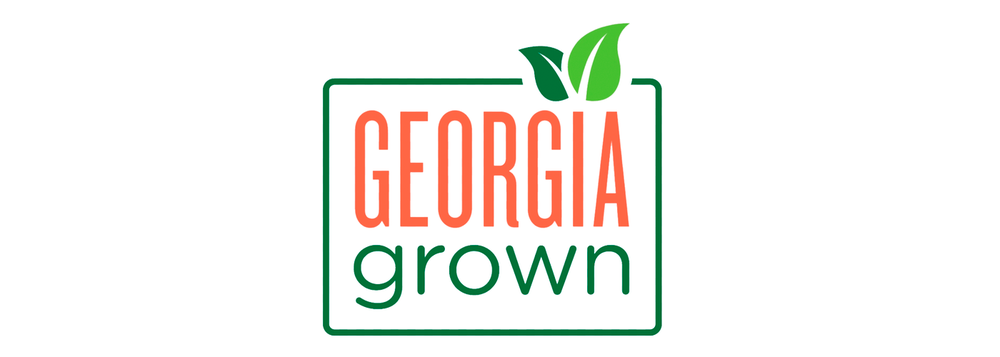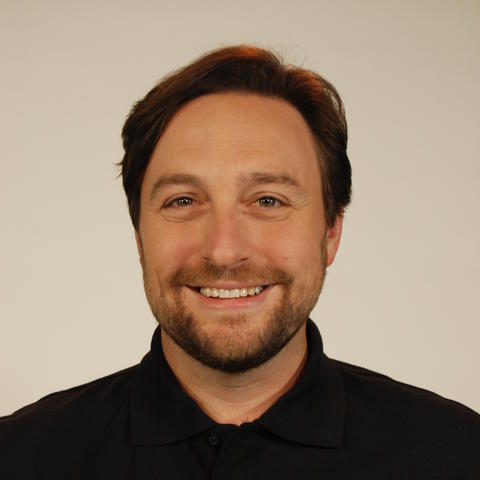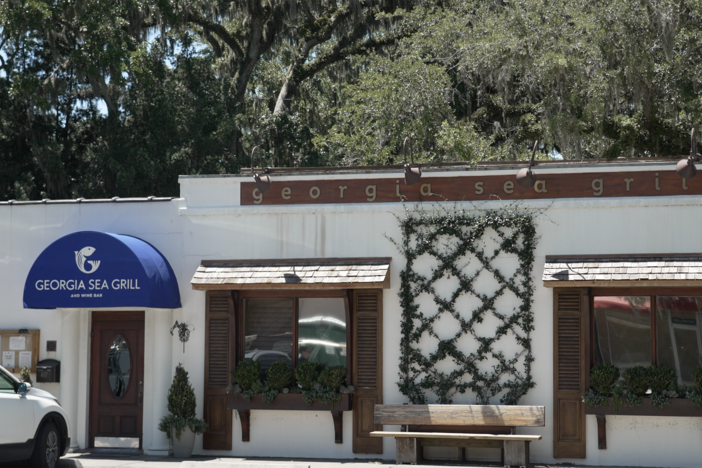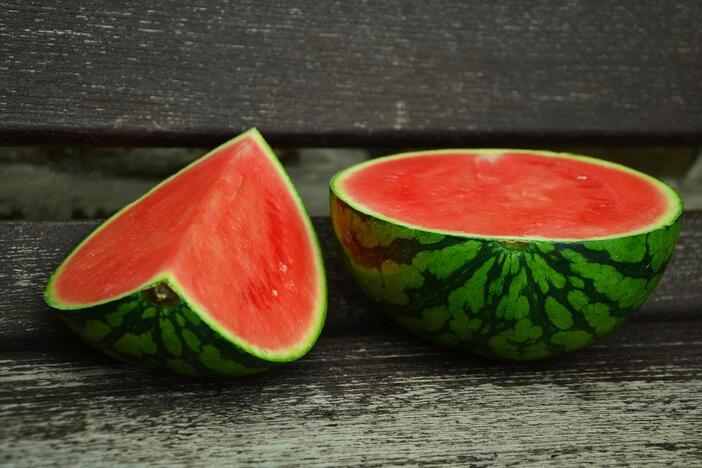
Section Branding
Header Content
A Fork in the Road Podcast: Baker Farms
Primary Content
Family and farming seem to go hand in hand. On this episode of the Fork in the Road podcast, we’re visiting Baker Farms in South Georgia where the family, the farm, and the business have been growing for more than 50 years.

Richard Baker: Again, we are all about building and growing the family. This is not really for me or my brother as much as it is for the next generations to come.
David Zelski: Family and farming seem to go hand in hand. On this episode, we're visiting a farm in South Georgia where the family, the farm and the business have been growing for more than 50 years.
Theme Song: I came from the mud, there's dirt on my hands. Strong like a tree, there's roots where I stand.
David Zelski: I'm David Zelski, and this is the Fork in the Road podcast presented by Georgia Grown and the fine folks at Georgia Public Broadcasting. Each episode we feature stories from Georgia's farmers, fishermen, merchants, artisans, chefs and others who helped provide Georgia Grown products to folks in the Peach State and beyond. Today, we're in South Georgia. Specifically, we are at Baker Farms in Norman Park, Georgia. And I don't necessarily expect you to know exactly where that is. So picture this. Tifton, Moultrie and Adel form kind of a triangle. Baker Farm sits right in the middle of that triangle. We're way down there only about 43 miles from the Florida state line. And it's in places like this that family and hard work are some of the most important things in the world.
Richard Baker: Began small. My dad started it a long time ago. Me and my brother and my sister, we grew up, all of us working on the farm, all of us trying to provide and make the farm grow. Started with a few tractors, a little bit of land, and a very small packing operation. And from there, we grew into a larger business, more successful, always keeping that family oriented aspect to it, though we've we've we've never fell away from that, which is important to all of us.
David Zelski: That's Richard Baker, one of the owners at Baker Farms. And his point about keeping the family aspect is a passion that runs deep here.
Joe Baker: I mean, I guess you could say, listen, if if it wasn't for my family or my brother, my sister, my brother in law, my children, and hopefully will be nieces and nephews in the future. I mean, that's what makes it that's what makes what we do important. You know, to me, it seems like every time another family member has joined the operation, the operation has continued to grow. And when we started off with, what, ten or 15 acres and now we're farming over 4000 acres of vegetables. So, yeah. And it's been a you know, that's been a big deal to us as a family for sure.
David Zelski: That's Joe Baker reiterating the same point. Family is very important to the Bakers. Okay, start off say and spell your name and your position here.
Terry Baker: My name is Terry Baker. I've lost my position, I think. Started Baker Farms in 1970 in a small way, just hoping to make a living and work at it for 50 years now. And with my family coming in to the farm. It's made it a lot better where at one time we were growing all types of vegetables. We have switched in the last few years, switched primarily to the greens, the wet items. It's worked real well for us. We've worked hard on quality and food safety and it's just it's something that if you you've got to have quality if you're going to stay in the business. And we have stressed that. We've been lucky, we've had great help and the help has been a big part of our success.
David Zelski: Help has been a big part of the Baker Farms' success. That help has come from multiple generations of the Baker family and multiple generations of chosen family members. We'll meet Jorge and his crew of workers who come to Baker Farms on H-2A visas a little later in this podcast. But first, let's go back to Joe.
Joe Baker: My role over over the years has changed. I mean, it started out as I was on the tractor, I was doing the planting and the plowing and doing what I say, what normal farmers used to do. But as as as you begin to grow in business, you know, that gets taken away from you whether you want it to be taken away from you or not. Unfortunately, thats the nature of growth sometimes. And now on my everyday, you know, my everyday operation, you know, I get up and I guess I sort of see what's going on. And, you know, I try to manage the everyday operation from not really from the outside looking in, if that makes any sense to you whatsoever. You know, I don't feel like I have one job, my job to do whatever needs to be done, you know, So I don't I feel like I have to wear several different hats.
David Zelski: And what exactly are they growing and harvesting at Baker Farms?
Joe Baker: Oh, we're are we're in we're harvesting curly mustard. We grow collards, kale, mustard, turnips. We grow cilantro, we grow parsley, beets, cabbage, cauliflower, broccoli. And we do a...you know we grow grow several several several hundred acres of each of those items. As far as that goes, we are there today, as you can tell, where we're harvesting curly mustard, which when we get through that will go to the to our packing facility. And some are would be some will be packed and shipped out directly to retail, some to wholesalers. Some of it would be placed in bags for the value added. And we ship all the way from, gosh, Miami, all the way to Michigan, all the way into Saint Louis, Chicago, pretty much all over the country.
David Zelski: And one of the things that sets Baker Farms apart is their commitment to being fresh and clean. It's a very important process for them.
Joe Baker: It is. It's very important. You know, we have a we have a process that when it gets back to our our packing plant, the stuff that goes and the bulk which is still be in the boxes, it'll go through a process of being what we call slushed ice. It'll go where it's getting running through clean water, ice is put on it, a lid is put on it, it is strapped in, then goes into our cooler. Well then we've went to the next step where we do a we put in our, our bagging facility where it is, all of our products is triple washed, it's cut clean. It's ready to eat for the consumer.
David Zelski: Impressive. Impressive indeed. Great point, me or David out in the field.
Producer Jeremy: Did you just respond to a recording of yourself?
David Zelski: Let's move on.
Richard Baker: Well we start off with as a product comes in the products is cooled for 24 to 48 hours, which you may or may not see in. That is in a bulk aspect that is then placed on conveyors. It goes through multiple staging areas where it's graded. They grade out any bad leaves they may find and things like that. And again, most of that we try to leave in the field. We try to leave any type of thing like that in the field. But as it does come up here, we do go through a grading system. It goes through a first wash like everything's very computerized and monitored. We we truly wash in a triple wash system. As you look through the process, you'll see where you've got three tanks in line in a linear, linear fashion. This allows that that that green or the product, whatever that product may be, to actually be submerged and cleansed in three different vats. Some operations use one and they'll run it through three different times. We actually use three separate vats. To me, being in the science background, that gives me a lot more control and I like control. I like to be able to monitor and control. Every vat is is a controled with computers where we inject certain types of chemicals to again give that that that cleans that cleanly aspect that we want to the products we provide to the public.
David Zelski: And it even then then it goes through the the drying process and these giant machines that are like giant dryers almost like the rest they rinse and dry cycle of a washing machine.
Richard Baker: Very similar, very similar. Just a lot more, I'd say a lot more expensive and a lot more heavy duty. We do put a lot we put the greens in there. And again, this is another aspect that we put our we put our finger on. We really try to control that. Every product that we actually dry. When we remove the water out of it, the important aspect of removing that water is you want to remove enough, but not too much that gets in the shelf life. You don't want to damage that product. You want to make sure it's it's done proper. So each product that we run and every drying unit we have runs through a program that I've set up that allows you to bring out enough moisture but not too much that way when it goes into the bag and in that controlled atmosphere in that bag, it gives it a better, a longer, safer shelf life.
David Zelski: There's a couple of things I want to point out here. First, did you notice how much care goes into the process of making sure that the greens you are getting from Baker Farms are top quality? Also, Richard mentioned his science background.
Richard Baker: Being in the science background, that gives me a lot more control and I like control. I like to be able to monitor and control. Every vat is is controlled with computers where we inject certain types of chemicals to again give that that that cleans that cleanly aspect that we want to the products we provide to the public.
David Zelski: So what exactly is his science background? Get ready for this.
Richard Baker: Yes, for a while I went into medicine. I worked in ICU, CCU work at the hospital. I was a family nurse practitioner, went to school, took a lot of sciences obviously with that particular background. A lot of computer related classes went into the medical field, worked in the hospital setting emergency room, and then turned around after that and opened up my own medical practice, ran that for about 10 to 12 years, had a really great time taking care of all the patients I did, but still felt a need and urge to come back to the family business as it began to grow and as the science and the engineering and the computers began to build in the process, I just felt the need to come back and hopefully be able to add to that and make it a better, stronger process for the family. Again, we are all about building and growing the family. This is not really for me or my brother as much as it is for the next generations to come. So for me it was important to come in and try to help that build that foundation that needed to be built. Hopefully with regards to the science and the the engineering and the computers so that that next generation could could really benefit from that.
David Zelski: Richard is using his education in computers, science, and medicine to improve products from Baker Farms, not just for the consumers but for future generations. And it's probably a good combination. You know, you get the new ideas from the next generation and then your grandson's generation, but they'll have you they have you to kind of be the safety valve, you know, to say, okay, that could work. But I have experience and tell me about that combination.
Terry Baker: Yeah, we're not you know, it's so much different than it was when when I started. It changes every year. And I have I've kind of turned it over the decision making to them, but I get a lot of phone calls. What do you think about this or what do you think we need to do tomorrow? That type of stuff, but that my children work hard to make sure that that, you know, I've always stressed the quality and they have worked hard to make sure we had that quality. And I think that's been a big part of our success. It's quality.
David Zelski: What does it mean to you to have your the next generation take control and even see John taking a young John taking to taking a major role?
Terry Baker: Yeah, that's that's the most important thing. Family's important. And regardless of whether you're farming or or whatever business you're in, family is, is the main part. And it's it's really important. And we've got we're going to have some girls coming into this, too. We've got 11 grandbabies and hopefully all of them that want will have we'll have a chance to come in and be a part of it.
David Zelski: Family. That is the overall theme here. Now let's bring in someone who isn't a Baker by blood. Heath Wetherington is the director of operations at Baker Farms.
Heath Wetherington: I've been in Baker Farms for almost 20 years now. I married into the Bakers. Some of the nicest folks you'll ever meet. It's been a great experience, and sometimes it can be tough working with family if we're not being honest. You know, that's part of a family business, is it's business all the time. And sometimes it's you know, you may not have as much family, but one thing about this family is we enjoy talking about the business. We enjoy each other's company, whether it be through fish fries or softball tournaments or race cars or all the different things that kids may be into. We we come together, we eat over the same table, we discuss the business, and we have fun with what we do.
David Zelski: What's it like working with family, uncles, all that?
John Baker: It's it's it's a great experience. I've learned a lot from my dad and my granddad and my uncle. He is. We talk pretty much more than anybody, but at the same time, me and my dad talk a lot. He he keeps us going for sure. And. But it's a lot of fun. I can't see myself anywhere else.
David Zelski: John Baker is the youngest of the Baker family, working full time on the farm. His role is farm manager. All right, farm manager here. There's there's a lot of farm.
John Baker: Oh, yeah, there is a lot of farm.
David Zelski: Tell me about your your day to day operations and what you're looking after.
John Baker: Oh, well, I pretty much oversee all the guys that works in the fields on the tractors. They, as far as, you know, ordering chemicals, getting the chemical reports for the guys, spreading the fertilizer, putting out the nitrogen, and pretty much all the fertilizer for the farm and for the crops, getting everything ready for the guys to cut, you know, before they cut.
David Zelski: And this isn't really a 9 to 5 job. You can get summoned at any moment.
John Baker: Yeah, it's pretty much 24 hours, seven days a week. You know, we might get off one day at 2:00. Well, I wouldn't say off, but we might get slow at two or 3:00 and then it might pick back up and have some irrigation mess up at 11:00 at night. And we have to go out and work on it for a couple hours. But it's pretty much all, you know, all during the weekends we have to be around and know, but it's a lot of fun. And I wouldn't, you know, I wouldn't want to be anywhere else.
David Zelski: Now, let's be frank. Farm work is hard work. However, it seems that the emphasis on family alleviates that a little bit. But what if you aren't related to the family. Jorge can give us some perspective. What's it like working with the Baker family?
Jorge: Well, I'm so proud. I mean, I feel good. They real good people in. And I never thought we was going to be here all these years. But we here for 29 years with Baker Farms. And, you know, we start I start from the cropping. Greens, squash, cabbages. And then I got on. Later on, I jumped on the tractors and then I got to the packing house like a supervisor on the packing house. And now I'm supervisor. The crew on the field.
David Zelski: Tell me about this crew. They're not always here, but they've been coming here a long time.
Jorge: Oh, yes. I've got some people. They've been working for Baker Farms for 22 years on our H-2A program.
David Zelski: Now, what is H-2A? The H-2A Temporary Agricultural Workers program, or H-2A visa program helps American farmers fill employment gaps by legally hiring temporary workers from other countries. Tell me what you teach them.
Jorge: Well, we teach and we try to teach them everything. You know, how to how to harvest. I trained them in Mexico. I got somebody that train them in Mexico. And then by the time they get to Baker Farms, they got a little experience, you know. And we teach them some more all the time.
David Zelski: It's really neat what they're doing. Can you walk through what they're doing? They're pulling. They're cutting. They're wrapping. Tell me about that process step by step.
Jorge: Okay. I started doing that in Mexico because it help me a big time. I grow some oats in Mexico, alfalfa, and that's how I start training them. That way when they get here, it is more easy for doing what we're doing. Harvest greens year around.
David Zelski: Yeah, and it's really neat watching them with the knives and with the wrapping that it's. It's so fast.
Jorge: Yes. Well, it's why we practice and try to teach them in Mexico because by the time they get here, all they got to do is start on these greens, beautiful greens and, and it get more easy and simple for them to learn and and get faster.
David Zelski: And and it's not just new workers every time this has been a generational thing many families and sons and grandfathers Tell me about that.
Jorge: Yes I got I don't know, two three families. I got I had the grandpa here and then the son and then the grandson. Well, it's it's more easy because the daddy teach the son or the cousin, the uncle teach the nephew. So it's why you see, what you see is they get it practice and experience quicker. I think that's what it is.
David Zelski: Generations of family, we keep hearing it over and over at Baker Farms. How can you be a part of all this? Look for Baker Farms products in your local grocery store.
Richard Baker: We sell a real we're heavy in Kroger real heavy and Walmart, SEG, which gets your Piggly Wiggly, your Harveys. We have a lot of your your some of the local stores. We also sell to some of the small mom and pops. Again, very important to us. We want to provide our product to everyone that needs it again because we really feel we really feel like our product is the best, safest product there is. I would rather I feed this same product to my family. I feed this same product to my mother, my father, my kids, my brother's children, my sister's children. So if I'm going to put my stamp of approval on this product with my own family, my own bloodline, and I obviously think it's important and it's safe enough to give to the public, and that's what it's important to me. If I didn't think it was, I wouldn't do it. And that's that's how we all feel about this. Both myself, my brother in law, my sister, my brother. We all feel that we want to do it the right way. There's only one way and that's the right way. And as Bakers, that's what we feel is very important.
David Zelski: Baker Farms is a shining example of the iconic family farm.
For more stories like this one, you can watch A Fork in the Road on GPB-TV or any time on the GPB.org website. GPB.org/Podcasts is where you can listen to and subscribe to this podcast or download it on your favorite podcast platform.
I'm David Zelski. Thanks for listening to A Fork in the Road.
The A Fork in the Road TV show airs Saturdays at noon and Sundays at 6:30 a.m. on GPB-TV. Check your local listings for other replays throughout the week and watch all episodes anytime at GPB.org/ForkintheRoad. Please download and subscribe to the Fork in the Road podcast at GPB.org/ForkintheRoadpodcast or on your favorite podcast platform as well.

Family and farming seem to go hand in hand. On this episode of the Fork in the Road podcast, we’re visiting Baker Farms in South Georgia where the family, the farm, and the business have been growing for more than 50 years.





